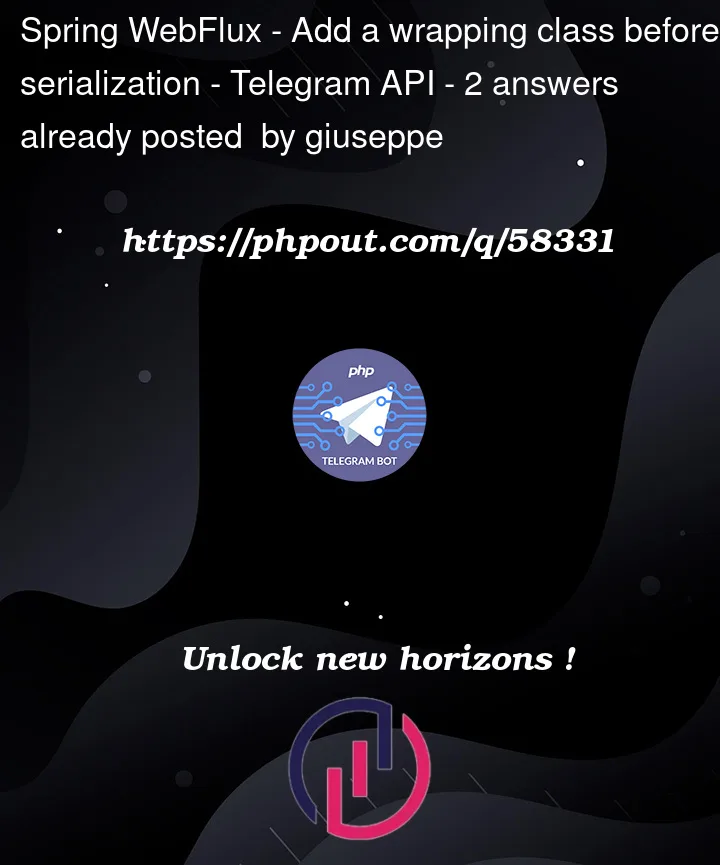I’m developing APIs for an exam project, but I wanted their responses to be consistently using a wrapping class on all of them (Telegram Bot API style for those who know them).
So, for example, having these two classes:
public class User {
public int id;
public String name;
}
public class Item {
public int id;
public String itemName;
public User owner;
}
What Spring returns to me is this output:
{
"id": 1,
"itemName": "theItem",
"owner": {
"id": 2,
"name": "theUser"
}
}
What I want instead is for this output to be returned:
{
"ok": true,
"data": {
"id": 1,
"itemName": "theItem",
"owner": {
"id": 2,
"name": "theUser"
}
}
}
Maybe using a class wrapper like this:
public class ResponseWrapper<T> {
public boolean ok;
public T data;
}
Is it possible to do this?




2
Answers
I thank @JustinMathew for the help, at the end, in my case (using Spring WebFlux with Kotlin), the ResponseBodyResultHandler class was more useful to me.
Edit: I made of this answer a library for Spring WebFlux 2.7.3 here.
P.S. I also took a cue from this other question, which faces the same problem but with Java.
I understand you need a global setting to convert all your responses into a standard one. For this you can implement ResponseBodyAdvice and have a common structure for all your api responses. Refer this link for a detailed example
Edit: For spring-webflux you can extend
ResponseBodyResultHandlerand overridehandleResult. An example is given in this answer